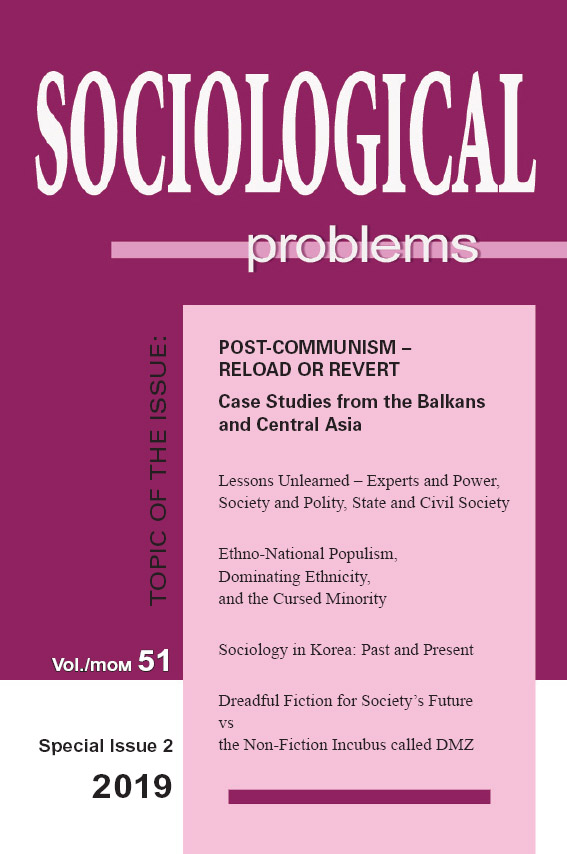Sociological Analysis of the Korean Film Train to Busan: A Scenario for the Future of Modern Society
Sociological Analysis of the Korean Film Train to Busan: A Scenario for the Future of Modern Society
Author(s): Rumiya TangalychevaSubject(s): Social Sciences, Media studies, Communication studies, Sociology, Sociology of Culture
Published by: Институт по философия и социология при БАН
Keywords: Korean film; Yeon Sang-ho; modern society; capitalism; scenarios of a future
Summary/Abstract: The paper focuses on the sociological analysis of images of the future of modern society presented in Train to Busan, filmed by the South Korean movie director Yeon Sang-ho. The content analysis of this Korean film reveals a gallery of social portraits and social strata of modern society. The author’s interpretation of the plot and discourse analysis are based on Beck’s theory of the risk society, Burawoy’s public sociology, and the scientific hypothesis and prediction provided by researchers of the future of capitalism Wallerstein, Collins, Mann and others. In order to understand how artistic and theoretical constructs are transformed into a construction of social reality, the author has studied interviews and reviews published in the Russian and foreign media. The film’s director Yeon Sang-ho contrasts two possible perspectives of the future. The first is related to capitalist values: productivity and material success; and the second, to personal responsibility for other people and for society as a whole. The goal of capitalist productivity is connected with the preservation of the work society, which under modern conditions supposedly guarantees personal happiness. However, this is no more than an illusion, since in a society where work is devalued, the need for productivity disappears.As the South Korean film director has shown, the image of the future is not necessarily associated with irresponsible capitalism or, conversely, with revolutions and the destruction of the capitalist structure of society. In any case, according to the ideological perspective of Yeon Sang-ho, the future should be associated with active collective actions of people for the creation of a fair and secure society. The social ideas of this film are consonant with the sociological concepts discussed in the article.
Journal: Социологически проблеми
- Issue Year: 51/2019
- Issue No: Special 2
- Page Range: 425-441
- Page Count: 17
- Language: English
- Content File-PDF

